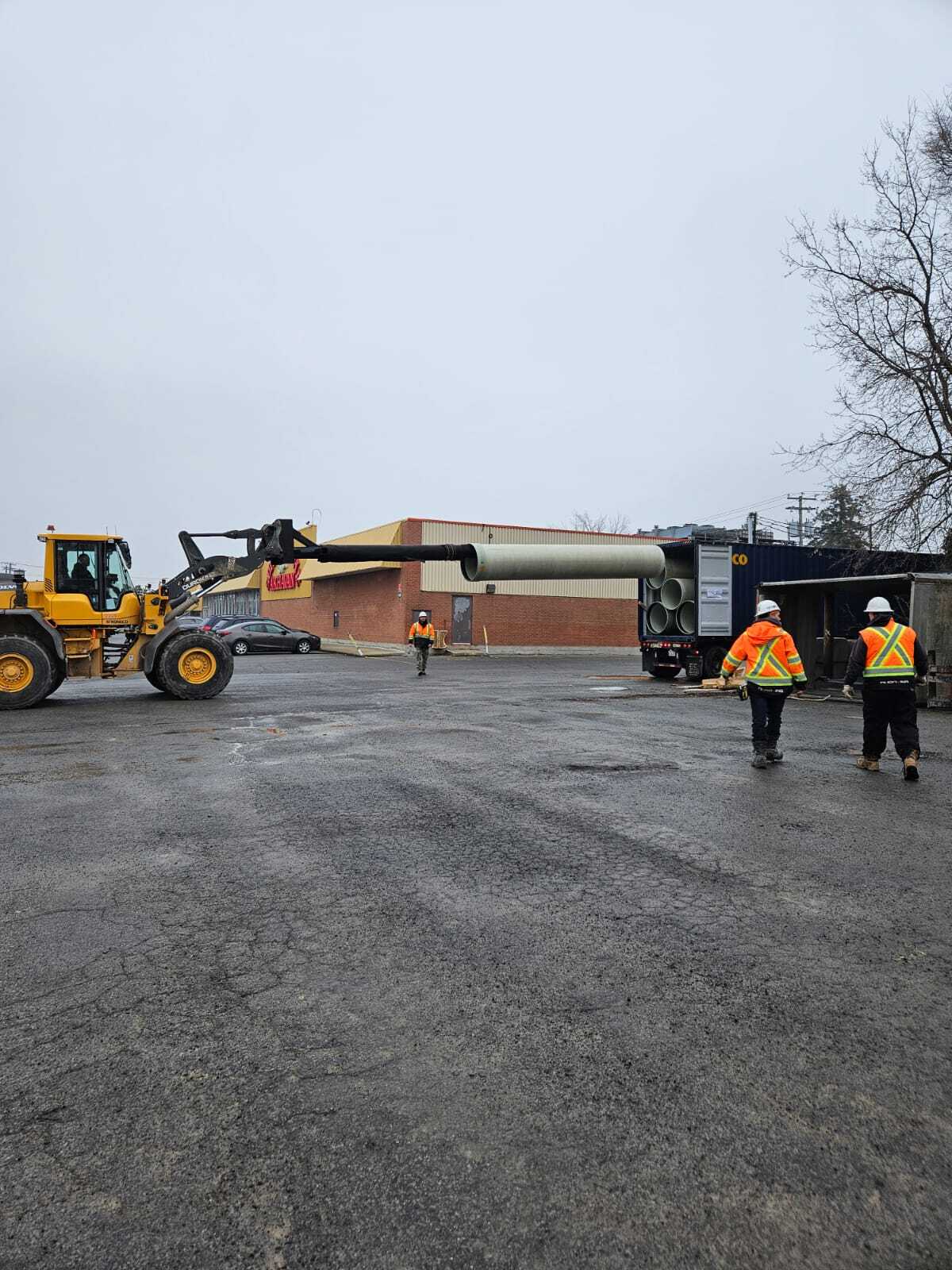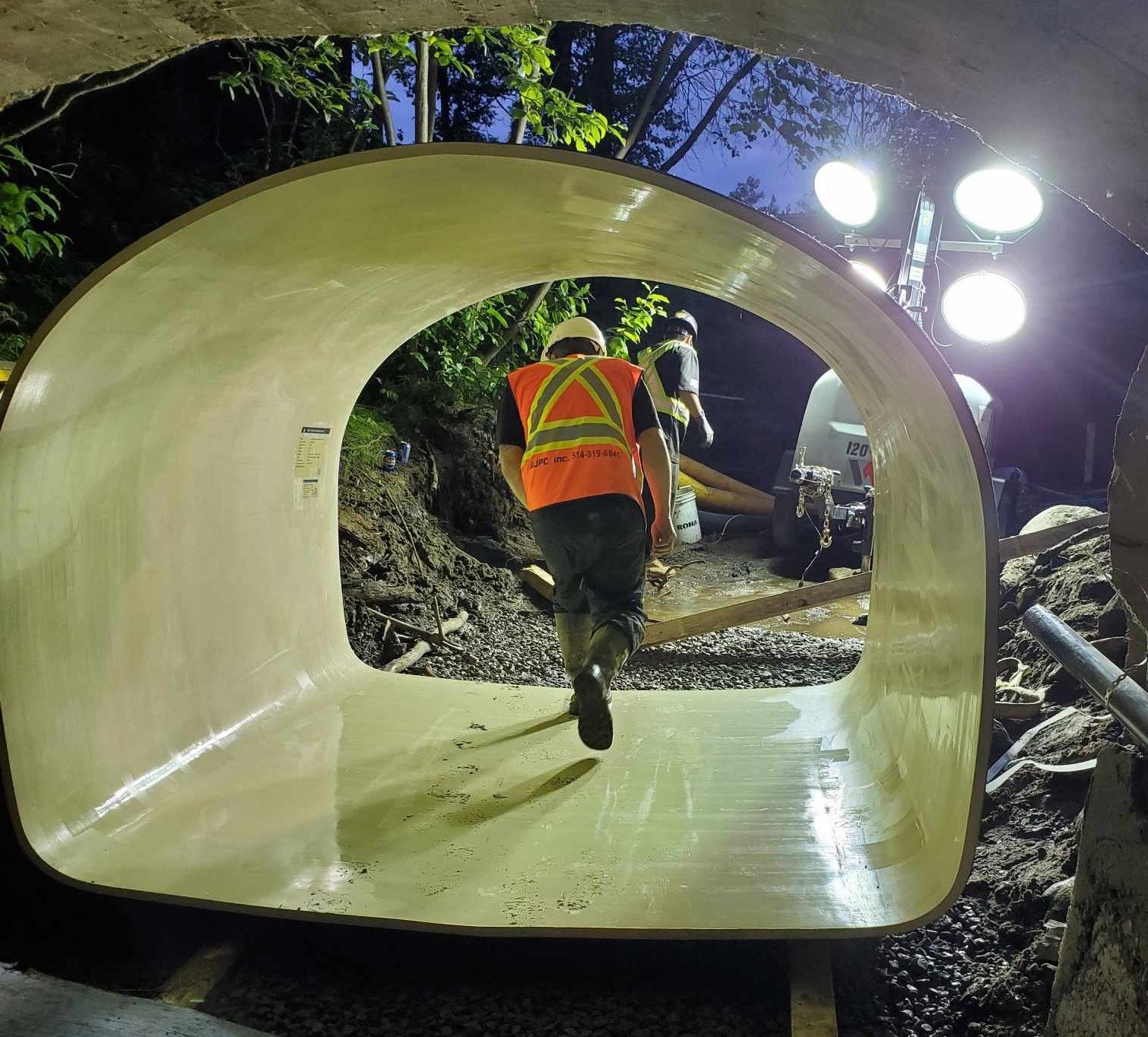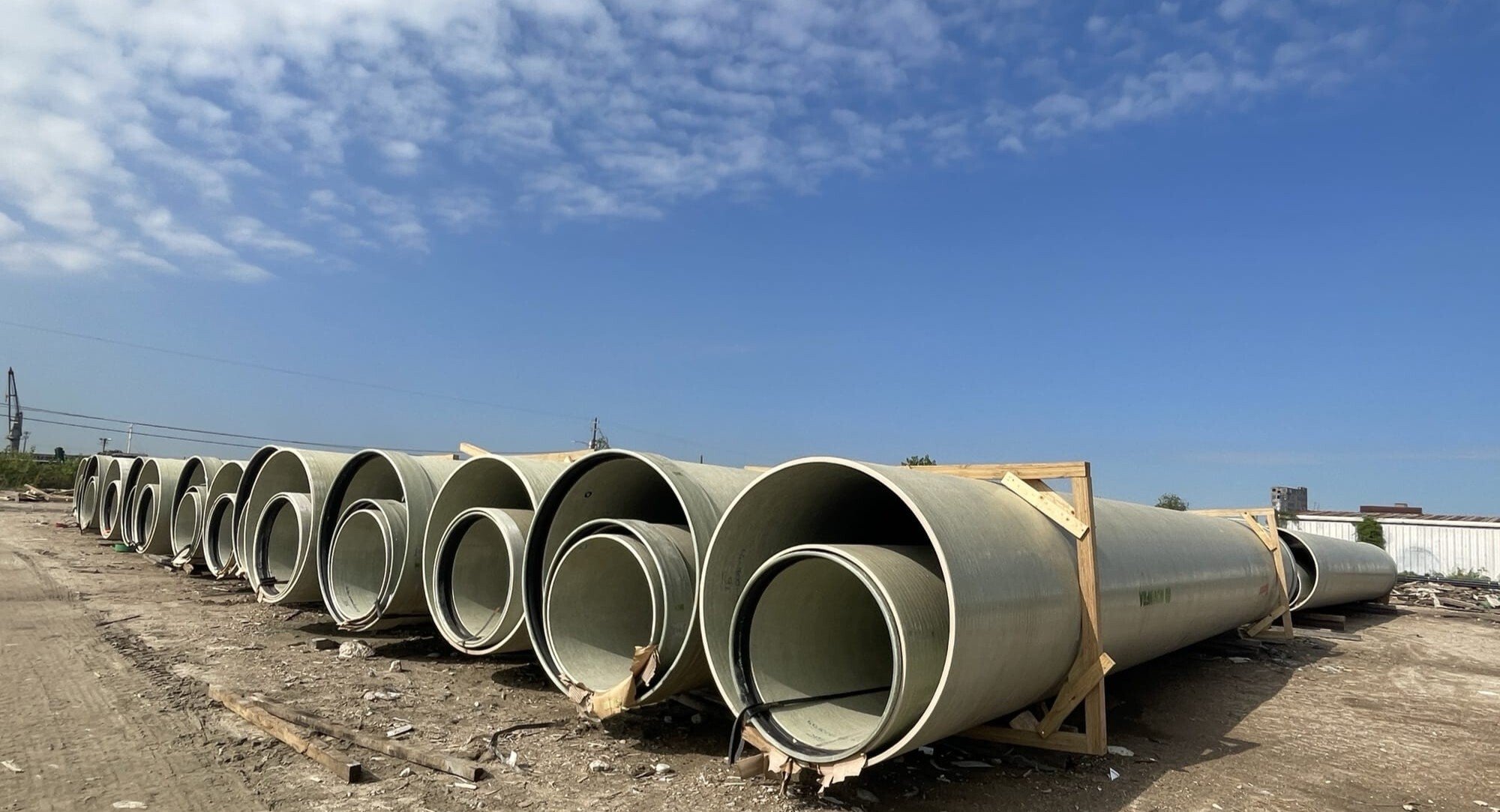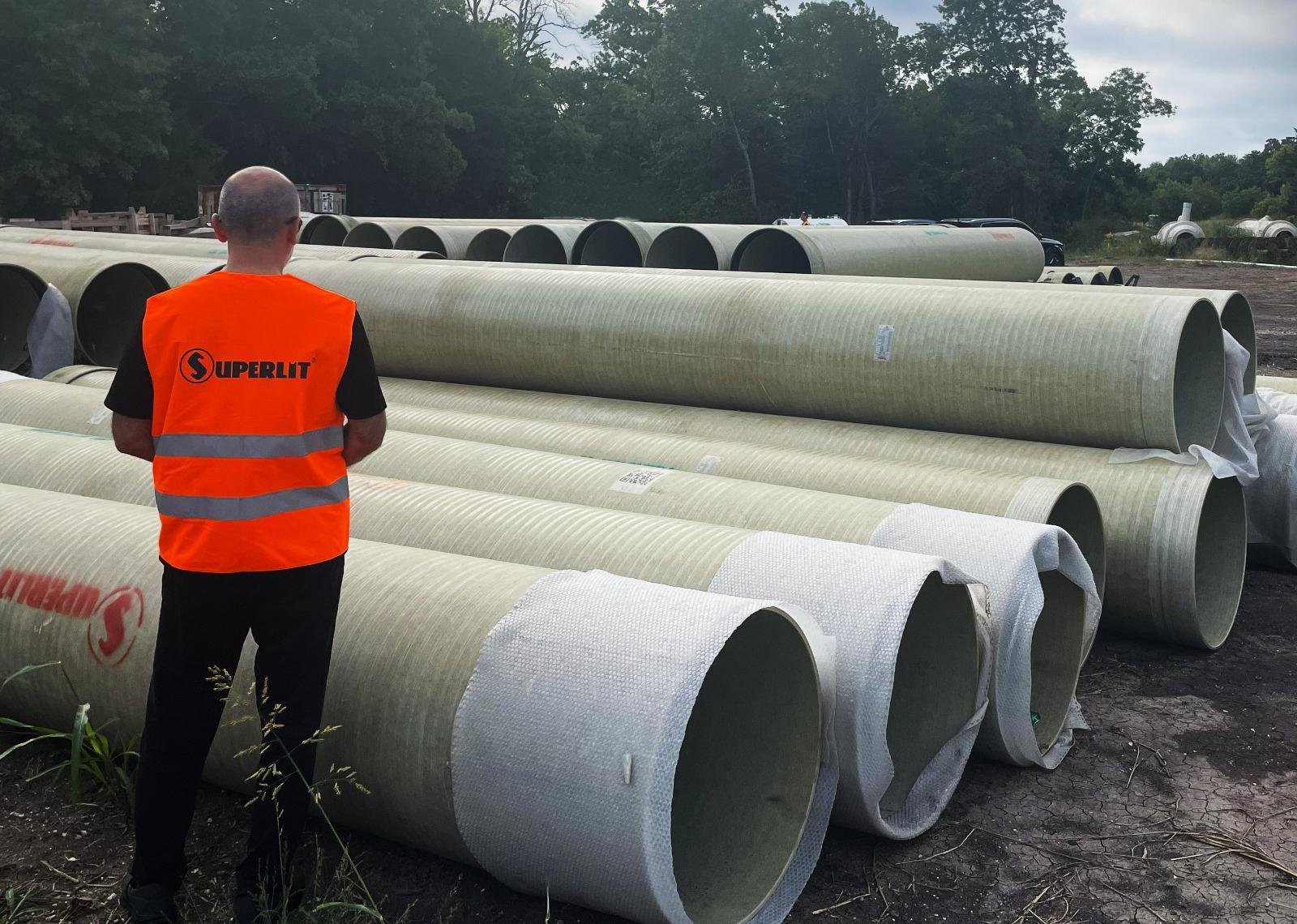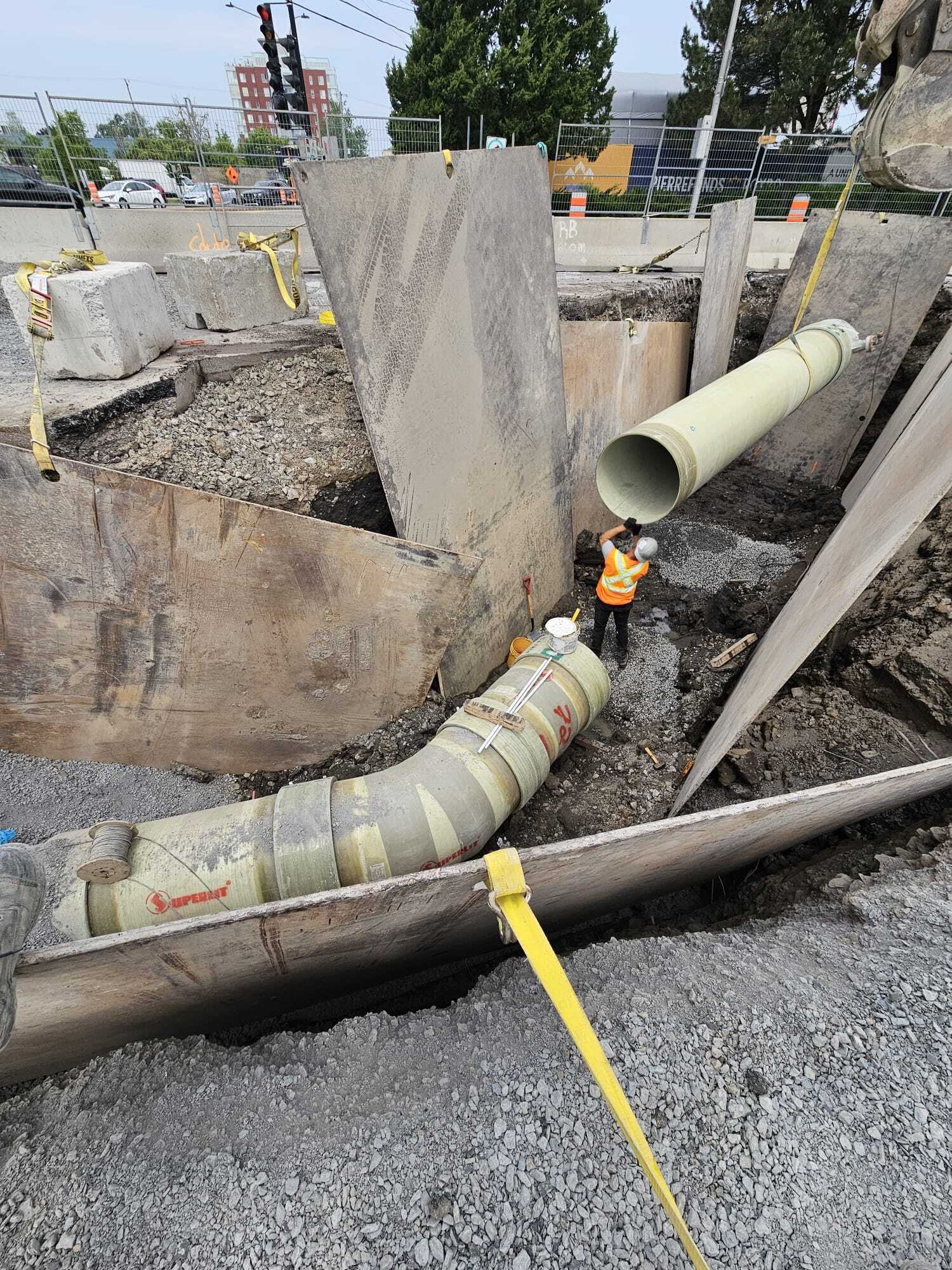
9,515 ft (2.9 km)
Total lengh
24 in (600 mm) & 36 in (900 mm)
Diameter
FRP pressure pipe for potable water (NSF certified)
Solution
Carried out in close collaboration with the City of Montreal and the contractor, this project aims to modernize a critical section of the West Island’s water and sewer infrastructure. Divided into three phases (Phase A: 2024/2025, Phase B: 2025, Phase C: 2024/2025), it leverages Novinfra’s expertise to deliver a sustainable, high-performance, and resilient infrastructure solution for the community.
The project involves the installation of 24-inch (600 mm) and 36-inch (900 mm) FRP pipes manufactured by SUPERLIT, designed for a minimum nominal pressure of 150 psi. The pipes are assembled using the Full Face® restrained joint system, which consists of FRP sleeves with EPDM sealing gaskets covering the full surface if the coupling and locking keys. Specifically engineered for pressurized applications, this system ensures long-term leak tightness and installation flexibility, allowing up to 3° of deflection depending on the pipe diameter.
The installation also includes more than 60 custom-made FRP fittings, along with five valve chambers and eight drain chambers, all designed to withstand a minimum pressure of 150 psi. Choosing an entirely FRP system provides complete corrosion resistance, simplified maintenance, and maximum durability for the city’s underground infrastructure.
A major factor behind the project’s success was the preparation of detailed installation plans, enabling each stage of construction to be executed with precision while minimizing disruptions and optimizing space in urban and residential environments. The ability to perform in-situ adjustments of FRP pipes and FRP fittings also contributed in optimizing the contractor’s performance and flexibility in meeting the project schedule.
From a logistics standpoint, the project required 40 deliveries totaling 64 containers of materials and several air shipments. Thanks to strategically located storage facilities in the Montreal area, part of the deliveries were managed offsite. This approach helped optimize operations in densely populated zones, reduce congestion, and ensure continuous supply to the construction site.
Despite the project's complexity, the collaboration with the City of Montreal was exemplary. Through open communication and regular coordination meetings, the teams were able to anticipate challenges and maintain a proactive, solutions-oriented approach throughout the project.
We are proud to have contributed to building a more resilient and sustainable drinking water system for the West Island community of Montréal!
